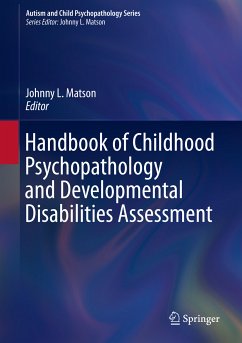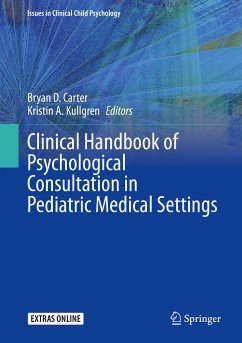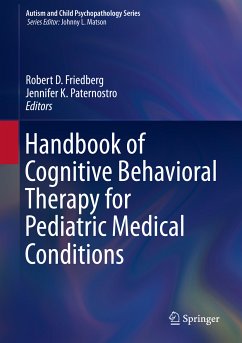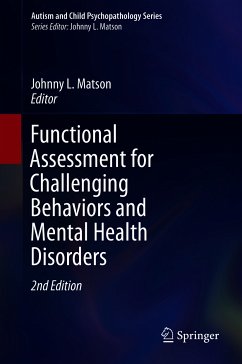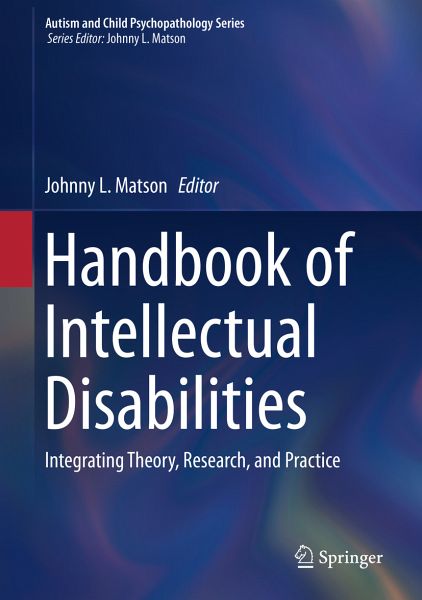
Handbook of Intellectual Disabilities (eBook, PDF)
Integrating Theory, Research, and Practice
Redaktion: Matson, Johnny L.
Versandkostenfrei!
Sofort per Download lieferbar
314,95 €
inkl. MwSt.
Weitere Ausgaben:

PAYBACK Punkte
157 °P sammeln!
This handbook offers a comprehensive review of intellectual disabilities (ID). It examines historical perspectives and foundational principles in the field. The handbook addresses philosophy of care for individuals with ID, as well as parent and professional issues and organizations, staffing, and working on multidisciplinary teams. Chapters explore issues of client protection, risk factors of ID, basic research issues, and legal concerns. In addition, chapters include information on evidence-based assessments and innovative treatments to address a variety of behaviors associated with ID. The ...
This handbook offers a comprehensive review of intellectual disabilities (ID). It examines historical perspectives and foundational principles in the field. The handbook addresses philosophy of care for individuals with ID, as well as parent and professional issues and organizations, staffing, and working on multidisciplinary teams. Chapters explore issues of client protection, risk factors of ID, basic research issues, and legal concerns. In addition, chapters include information on evidence-based assessments and innovative treatments to address a variety of behaviors associated with ID. The handbook provides an in-depth analysis of comorbid physical disorders, such as cerebral palsy, epilepsy and seizures, and developmental coordination disorders (DCD), in relation to ID.
Topics featured in this handbook include:
- Informed consent and the enablement of persons with ID.
- The responsible use of restraint and seclusion as a protective measure.
- Vocational training and job preparation programs that assist individuals with ID.
- Psychological and educational approaches to the treatment of aggression and tantrums.
- Emerging technologies that support learning for students with ID.
- Key sexuality and relationship issues that are faced by individuals with ID.
- Effective approaches to weight management for individuals with intellectual and developmental disabilities.
The Handbook of Intellectual Disabilities is an essential reference for researchers, graduate students, clinicians and related therapists and professionals in clinical child and school psychology, pediatrics, social work, developmental psychology, behavioral therapy/rehabilitation, child and adolescent psychiatry, and special education.
Dieser Download kann aus rechtlichen Gründen nur mit Rechnungsadresse in A, B, BG, CY, CZ, D, DK, EW, E, FIN, F, GR, HR, H, IRL, I, LT, L, LR, M, NL, PL, P, R, S, SLO, SK ausgeliefert werden.



